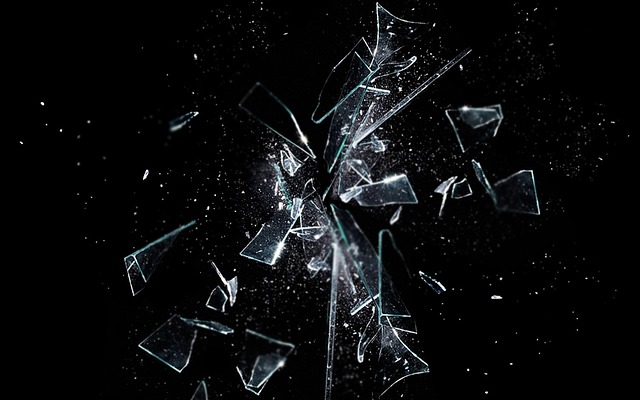Black Mirror is back!
And what better way to spend a beautiful June day than ensconced under my duvet, curtains
drawn, glutting myself on the horrific imaginings that burst forth from the twisted mind of
Black Mirror’s writer, Charlie Brooker. Five episodes later, emerging from my hovel, eyes
blinking as I snatch the curtains open, feeling utterly despondent, and questioning reality
itself, I ask myself a question: was it all worth it? Would I recommend that you put yourself
through such a harrowing ordeal?
Yes, of course! And no, definitely not.
The title of the show says it all, really: BLACK MIRROR. Brooker holds up a mirror to
society and reflects upon its darkest parts. As the credits open, a crack is heard and a thin
fracture splinters across the glass screen. Evidently, the ugliness of our society is such that
even this black mirror cannot but shatter when beholding our gruesomeness.
I must say, yet again, Brooker has succeeded in capturing this ugliness with his
characteristically bleak humour. The first episode, ‘Joan is Awful’, centres around an
ordinary woman who switches on her television to discover that a TV series has been made of
her life, in which she is portrayed by an artificially generated Salma Hayek. The global
streaming service in question, Streamberry, is a thinly veiled stand-in for Netflix itself.
When an interviewer asks the CEO of Streamberry, Mona Javadi, why the AI-generated
content produces such negative depictions of its customers, she shamelessly responds:
‘When we focused on their more weak or selfish or craven moments, it confirmed their
innermost fears and put them in a state of mesmerized horror. [She chuckles slightly and
pauses for dramatic effect] Which really drives engagement! They literally can’t look away.’
And, in episode two, Loch Henry, this satirical assault on Netflix continues (but, at risk of
dropping spoilers, I won’t reveal any more!).
As Black Mirror was sold to Netflix in 2015, Brooker seems to be firing potshots at the
organisation that salaries him and bankrolls his projects! How wonderfully defiant! How
terribly brazen! Perhaps Brooker’s episodes are the work of a renegade saboteur trying to
disrupt the system from within.
Then again, perhaps they are not. If we remember back to the second episode of series one,
‘Fifteen Million Merits’, the protagonist, Bing, played by Daniel Kaluuya, is forced to turn
his rebellion into a monetised primetime TV slot. His dissent becomes a commodity. And,
arguably, this is what has happened to Brooker too. As Harvey Dent says in The Dark knight,
‘you either die a hero or live long enough to see yourself become a Netflix sellout.’
The heavy irony throughout the season provides a comforting critique of authority without
actually changing anything. If anything, when these hegemonic transnational corporations do
roll their caterpillar treads over our humanitarian liberties, we will congratulate ourselves on
having seen it coming. And then go back to shuffling around in the Amazon warehouse
super-complex because the ProductivityCollar™ around our neck will administer an electric
shock if we don’t get back to work within the next three, two, one, ZAP! And we will think to
ourselves, ‘Wow, this is so much like Black Mirror!’ And we will congratulate ourselves on
our foresight as Netflix installs a microchip into our brains that plays advertisements directly
into our consciousness (unless you pay for the premium package, of course).
In this modern age, we are all blissfully AWARE of the horror that awaits us. The
contemporary Cassandra has an infinitely more impossible task than simply trying to
convince people to believe her bleak visions of the future: she must persuade people to care.
We can watch some social commentary on TV and tell ourselves that we’ve got it all figured
out. We can congratulate ourselves on being ‘in the know’. Not like those other sheeple! And
then we go back to our phones, our Urban Outfitters shopping trips, and our kiwi passionfruit
disposable vapes. Our eyes are wide open to the horrors of the world—but they are glassy
and glazed over. We look but we do not see.
What is Brooker really achieving in creating this TV show? In an article published by the
Guardian in 2013, Brooker wrote of there being ‘too much talk for one planet’ and promised
to reduce his ‘word emissions’. His latest season seems to renege on this promise. But he is
right to adopt the language of the climate crisis when discussing his media output. The so-
called technosphere (the network of technologies reliant on fossil fuels) is deeply embroiled
with the climate crisis. As Mark Mills argues in ‘The Cloud Begins with Coal’, using a
computer or phone to watch just one hour of video media weekly requires just as much
energy as running two refrigerators for a year. Even opening my laptop to type this
unimportant and unremarkable article is burning coal and contributing to the climate
crisis—to that ‘vast cloud of blah’ that Brooker warned us against. Just consider the quantity
of planet-killing emissions emitted by Netflix in the process of making a show reminding us
all about how we’re going to kill the planet. That’s the real irony.
To conclude, perhaps the best review I could write is not writing a review at all! Perhaps the
best season of Black Mirror, the one that would really have benefitted the planet most, is the
one that was never made. Precisely because it would never have been made. Because it’s not
like it’s going to make a jot of difference. Watch it or don’t watch it. We’re all f*cked
anyway.
